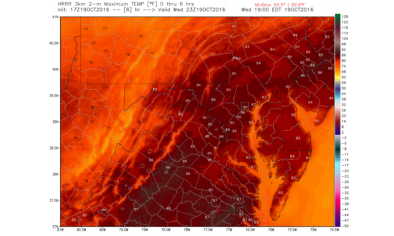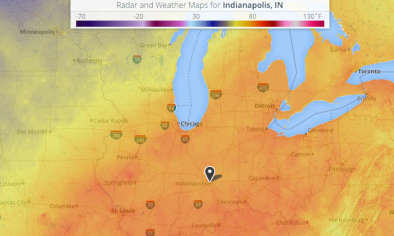Science Source
Frequency of Extreme Heat Event as a Surrogate Exposure Metric for Examining the Human Health Effects of Climate Change
- States that epidemiological investigation of the impact of climate change on human health, particularly chronic diseases, is hindered by the lack of exposure metrics that can be used as a marker of climate change that are compatible with health data
- Presents a surrogate exposure metric created using a 30-year baseline (1960–1989) that allows users to quantify long-term changes in exposure to frequency of extreme heat events with near unabridged spatial coverage in a scale that is compatible with national/state health outcome data
- Evaluates the exposure metric by decade, seasonality, area of the country, and its ability to capture long-term changes in weather (climate), including natural climate modes
- Looks at extreme heat event dataset consisted of 3,109 counties over 51 years (1960 to 2010) located in the continental US
- Observes significantly higher frequency of extreme heat events during the 1990s and 2000s compared to the reference period (1960–1989)
- Finds that within the two time periods (1990s and 2000s) the large central metro areas observed higher number extreme heat events compared to small metro and micropolitan areas
- Finds an increasing trend in extreme heat events that varied considerably by area of the country, with the most pronounced trend observed for the New England, Middle Atlantic and Mountain divisions with lesser increases in the East and West North Central divisions
- Findings show that this generic exposure metric is potentially useful to monitor trends in the frequency of extreme heat events across varying regions because it captures long-term changes; is sensitive to the natural climate modes (ENSO events); responds well to spatial variability, and; is amenable to spatial/temporal aggregation, making it useful for epidemiological studies
Related Content
Headline

Oct 19, 2016 | Washington Post
Temperatures surge into upper 80s, setting records in D.C. region
Headline

Oct 19, 2016 | USA Today
What happened to fall? More heat records set Wednesday
Headline

Oct 19, 2016 | Indiana Public Media
Monday Sets New Record High Minimum Temperature
Headline

Oct 19, 2016 | Elite Daily
It's Never Been This Hot In October Before, And It's Only Going To Get Hotter


